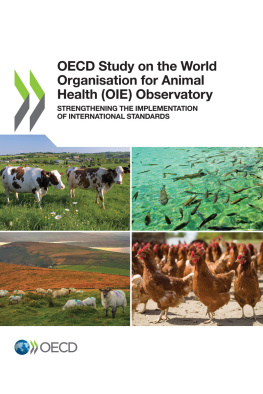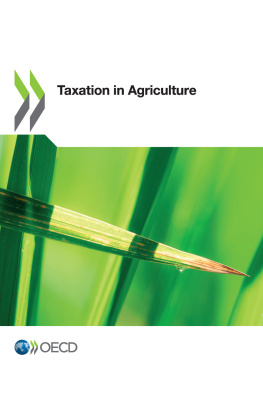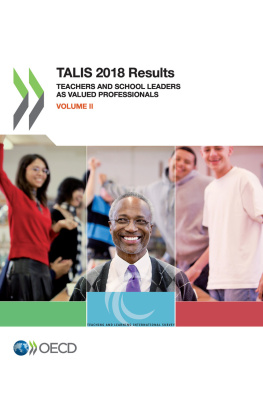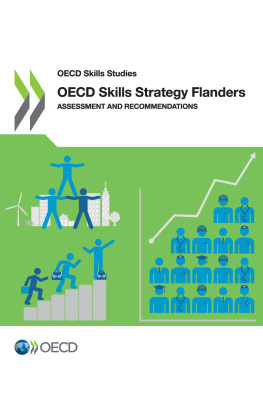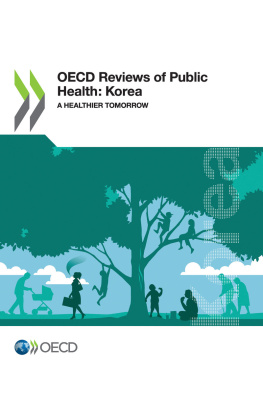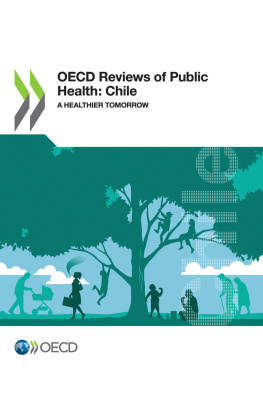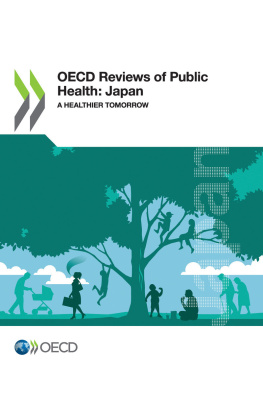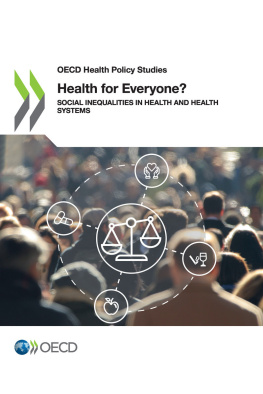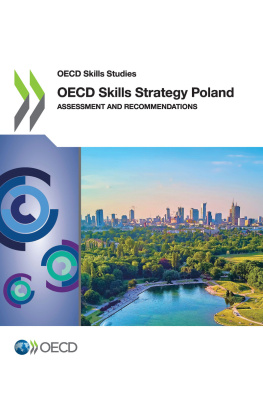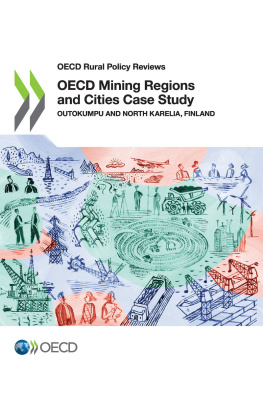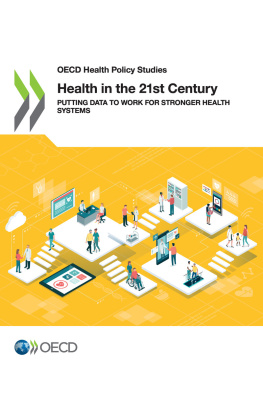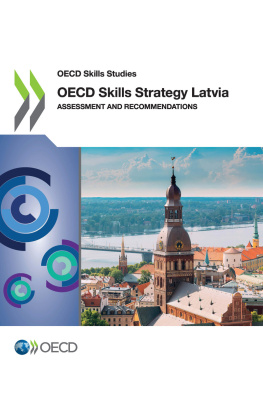OECD - OECD Study on the World Organisation for Animal Health (OIE) Observatory
Here you can read online OECD - OECD Study on the World Organisation for Animal Health (OIE) Observatory full text of the book (entire story) in english for free. Download pdf and epub, get meaning, cover and reviews about this ebook. year: 2020, publisher: OECD Publishing, genre: Romance novel. Description of the work, (preface) as well as reviews are available. Best literature library LitArk.com created for fans of good reading and offers a wide selection of genres:
Romance novel
Science fiction
Adventure
Detective
Science
History
Home and family
Prose
Art
Politics
Computer
Non-fiction
Religion
Business
Children
Humor
Choose a favorite category and find really read worthwhile books. Enjoy immersion in the world of imagination, feel the emotions of the characters or learn something new for yourself, make an fascinating discovery.
- Book:OECD Study on the World Organisation for Animal Health (OIE) Observatory
- Author:
- Publisher:OECD Publishing
- Genre:
- Year:2020
- Rating:3 / 5
- Favourites:Add to favourites
- Your mark:
- 60
- 1
- 2
- 3
- 4
- 5
OECD Study on the World Organisation for Animal Health (OIE) Observatory: summary, description and annotation
We offer to read an annotation, description, summary or preface (depends on what the author of the book "OECD Study on the World Organisation for Animal Health (OIE) Observatory" wrote himself). If you haven't found the necessary information about the book — write in the comments, we will try to find it.
OECD: author's other books
Who wrote OECD Study on the World Organisation for Animal Health (OIE) Observatory? Find out the surname, the name of the author of the book and a list of all author's works by series.
OECD Study on the World Organisation for Animal Health (OIE) Observatory — read online for free the complete book (whole text) full work
Below is the text of the book, divided by pages. System saving the place of the last page read, allows you to conveniently read the book "OECD Study on the World Organisation for Animal Health (OIE) Observatory" online for free, without having to search again every time where you left off. Put a bookmark, and you can go to the page where you finished reading at any time.
Font size:
Interval:
Bookmark:
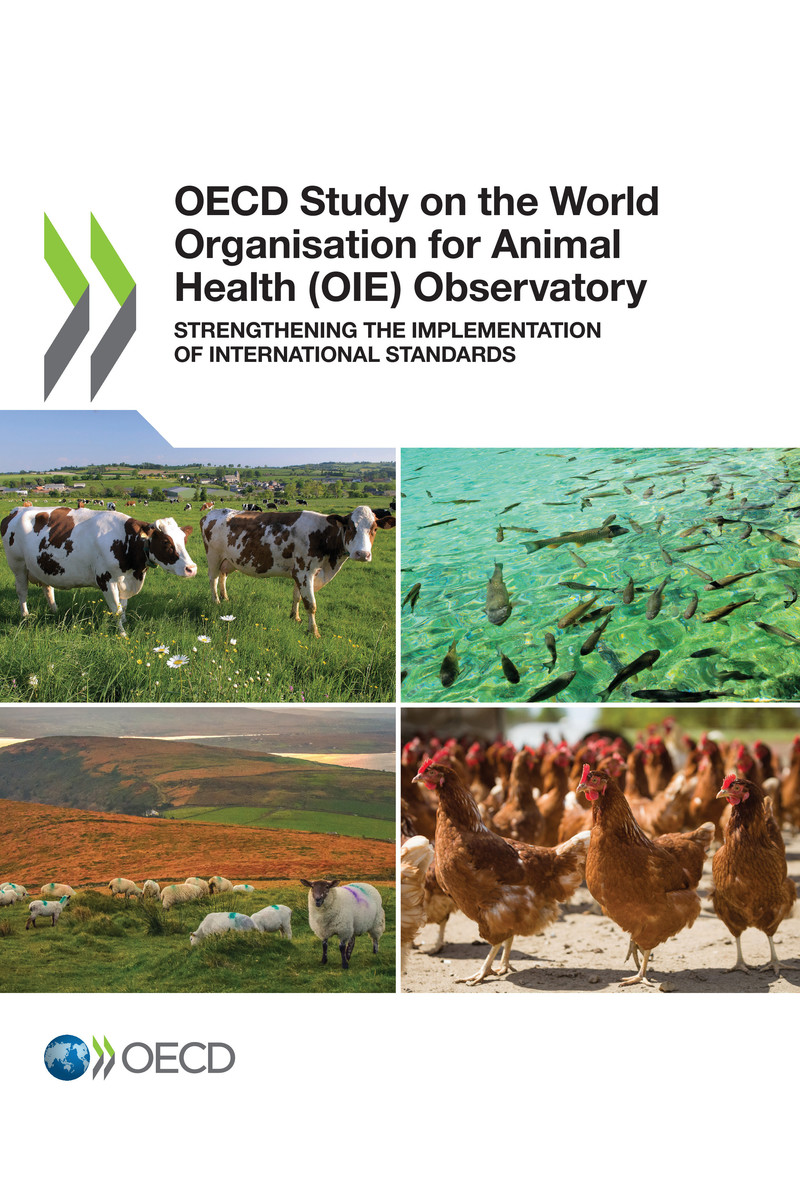
OECD (2020), OECD Study on the World Organisation for Animal Health (OIE) Observatory: Strengthening the Implementation of International Standards , OECD Publishing, Paris, https://doi.org/10.1787/c88edbcd-en .
The World Organisation for Animal Healths (OIE) mission is to foster global co-operation to improve animal health, animal welfare and veterinary public health worldwide. OIE Members develop and adopt international standards to better co-ordinate their approach to prevent and control animal diseases, facilitate safe international trade as well as strengthen national Veterinary Services.
Our Members face a growing challenge to co-ordinate their policy making to manage global sanitary risks in a world which is becoming increasingly globalised and complex. Indeed, animal diseases and zoonoses know no borders, as demonstrated by the ongoing transboundary spread of foot and mouth disease, avian influenza and African swine fever, among many other examples.
We know that many OIE Members face challenges in the implementation of our international standards. Understanding to what extent and how the OIE standards are used by Members is essential to ensure our standards are fit for purpose and relevant. In May 2018, the World Assembly of OIE Delegates adopted a resolution recommending that an Observatory on the implementation of OIE standards be established to address these issues.
For such an ambitious and challenging project, the OIE entered into a specific collaboration with the Organisation for Economic Co-operation and Development (OECD) to explore the potential solutions for the design of the OIE Observatory. Using its expertise in international regulatory cooperation, the OECD carried out the study reported in this document which provides an analysis of key features of OIE standards, as well as a review of the existing sources of information in relation to their implementation.
The OECD study highlights that a project to monitor implementation of OIE standards will be complex and challenging because of the voluntary nature of the OIE standards, and the variability of implementing mechanisms. We know that OIE Members use a range of approaches in implementing OIE standards because of differences in sanitary situations, legal frameworks and procedures, public and private sector relationships, national systems for production and processing, trade profiles and acceptable levels of risks.
Despite this complexity, the OECD has provided recommendations to assist the OIE in the design of the OIE Observatory. The OIE Observatory is an important strategic and long-term project for the OIE, that will contribute to the strengthening of international harmonisation of national sanitary measures.
I would finally like to emphasise that this study was developed in the framework of OECD work on international regulatory co-operation and the partnership of international organisation for effective international rulemaking, to which the OIE is actively contributing along with 50 other international organisations. Learning collectively from the experiences of international organisations helps us to understand how international organisations can promote multilateral solutions and improve our collective contribution to a sustainable future.

Monique Eloit
OIE Director General
The protection of animal health and welfare is one of many areas where governments can benefit from co-operating internationally and co-ordinating their national policies. Without the implementation of prevention and control measures, animal diseases can spread both within and between countries. The dissemination of animal diseases around the world can be devastating for animal production, human health (for zoonotic diseases) and have serious consequences for national economies. Intergovernmental co-operation is therefore essential to prevent the spread of diseases across borders and to provide sanitary measures that ensure safe international trade of live animals and animal products.
The World Organisation for Animal Health (OIE) is an international organisation developing and adopting international standards that if implemented safeguard animal health worldwide. In order to monitor the implementation of these common standards across countries, the OIE has decided to establish an Observatory. It is an ambitious project that has great potential to gather tangible information on the use of OIE standards in countries.
Based on an in-depth analysis of the OIE and its normative work, this study finds that OIE standards are a reference in the areas of animal health, animal welfare and zoonoses. Many data collection mechanisms already provide information about the implementation of OIE standards. However, monitoring of implementation of these standards is not yet systematic, and information remains limited in scope and irregular in frequency. This study provides recommendations on how the OIE can use its existing institutional framework and information-collection mechanisms to support the OIE Observatory.
The study builds on OECD long-standing work on regulatory policy and governance, as set out in the OECD 2012 Recommendation of the Council on Regulatory Policy and Governance. It was developed in the framework of OECD work on international regulatory co-operation (IRC) (Principle 12 of the Recommendation), within the Partnership of International Organisations for Effective International Rulemaking (IO Partnership). It is part of a series started in 2014 that provides detailed overviews of the structure, governance, instruments and processes of international organisations (IOs) in support of international rule-making and standard-setting.
To date, the series includes the cases of the OECD, the International Maritime Organization (IMO), the Food and Agriculture Organization of the United Nations (FAO), the International Organization for Standardization (ISO), the International Organization of Legal Metrology (OIML), the World Health Organization (WHO), the UN Economic Commission for Europe (UNECE), the World Trade Organization (WTO) and the Bureau International des Poids et Mesures (BIPM). The case studies complement broader analytical work conducted by the IO partnership that compares the governance modalities and rule-making processes of 50 IOs, annual meetings and technical discussions within five working groups.
Font size:
Interval:
Bookmark:
Similar books «OECD Study on the World Organisation for Animal Health (OIE) Observatory»
Look at similar books to OECD Study on the World Organisation for Animal Health (OIE) Observatory. We have selected literature similar in name and meaning in the hope of providing readers with more options to find new, interesting, not yet read works.
Discussion, reviews of the book OECD Study on the World Organisation for Animal Health (OIE) Observatory and just readers' own opinions. Leave your comments, write what you think about the work, its meaning or the main characters. Specify what exactly you liked and what you didn't like, and why you think so.

